Caño Negro National Wildlife Refuge, Alajuela
A stunning natural refuge, Caño Negro is considered by many to be the third most important wetland in the world.
A must visit place when in Costa Rica, this sanctuary was named the ‘Wetland of International Importance’ in 1991, and is one of the most significant humid zones in the country.
Designated a ‘world protected area’ by conservation groups like Ramsar; Caño Negro is home to a number of the world’s rare plant, animal and bird species.
Ecologically Diverse
Lying very close to the border of Nicaragua, the Caño Negro Wildlife Refuge is located in Alajuela province in the counties of Los Chiles and Guatuso.
Thirty kilometers southeast of Upala town, this refuge lies in northern Costa Rica and is without doubt one of the most ecologically diverse sites in the country.
A nature lover’s paradise, Caño Negro is the habitat of many migrant and endangered fish, reptiles, birds and plants.
Costa Rica’s only region of true zonal precipitation, this wildlife reserve is the dwelling of the ‘Atractosteus tropicus’ (fish) as well as the ‘Caiman crocodilus fuscus’ (caiman) and the rare ‘Nicaraguan grackle’ (bird).
A fresh water lagoon, Caño Negro is over 800 hectares and is found between the Pacific lowland’s monsoonal climate and the Caribbean coastal area’s humid climate.
A region of extreme biological importance due to the immense variety of flora and fauna found here, Caño Negro is also a key migratory route for birds from the north.
To date more than 200 species of birds have been found here, as well as several unique and distinct plants and animals.
Home of the Emerald Basilisk, Giant Bear Ant, jaguars, ocelots, iguanas, river turtles, monkeys, pumas and caimans, this wildlife refuge is also the abode of rare birds like the northern jacanas, ibises, jabiru storks, anhingas, cormorants and roseate spoonbills.
In the waters of the Caño Negro lagoon one can find rare fish like the snook and guapote.
Map of the Area
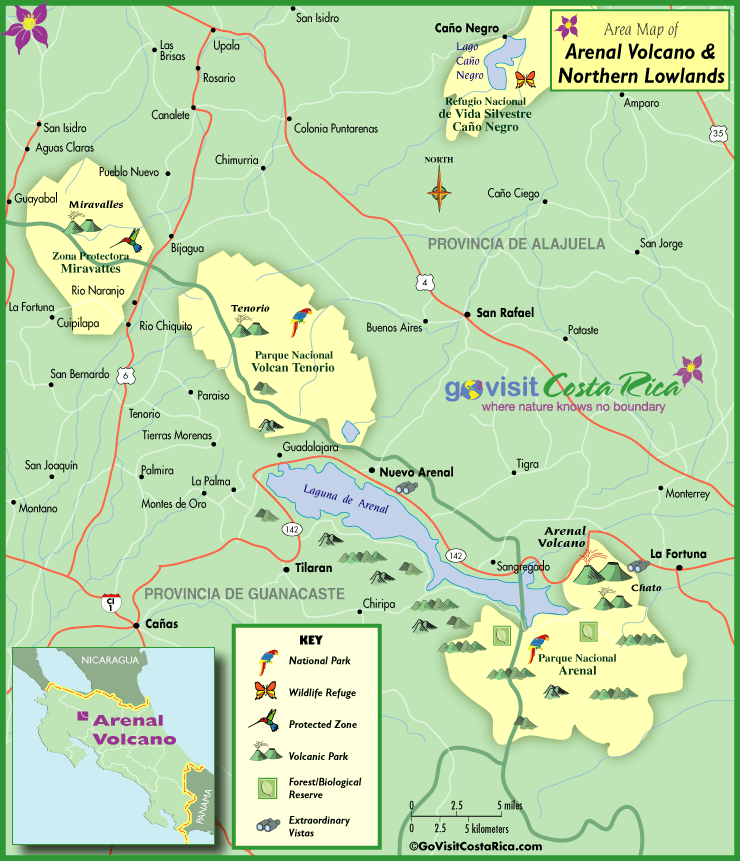
Among the first national refuges to emphasize the handling of tourism activities with the biological resources of an area, Caño Negro is a great educational experience for all, individuals and families alike.
Accessed by road during the dry season, this wildlife reserve tends to flood when it rains, making it difficult to reach unless one uses a boat or launch.
Getting to Caño Negro
To get to Caño Negro, fly into San Jose and then drive out north to Ciudad Quesada (San Carlos). From here, head to the village of Los Chiles and then on to this immensely beautiful wildlife refuge.
There are also many tours of Caño Negro that leave from La Fortuna de San Carlos next to Arenal Volcano.
6 Days / 5 Nights
Starting at $1,018 per person
12 Days / 11 Nights or 10 Days / 9 Nights
Starting at $2,352 per person
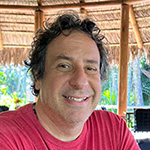




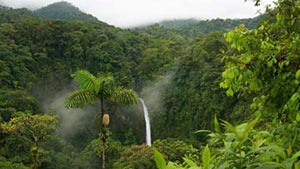
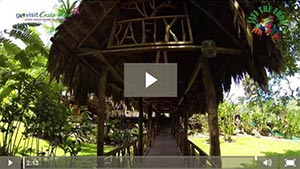
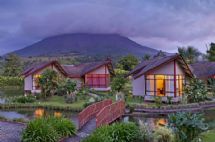
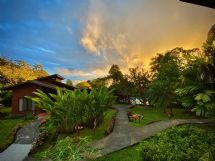
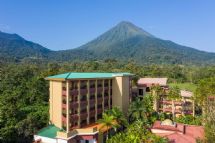
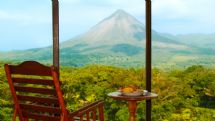
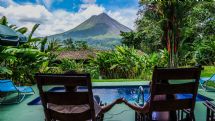
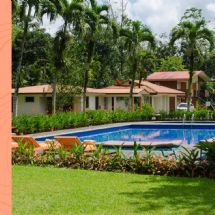
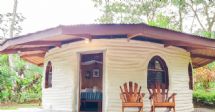
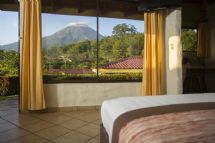
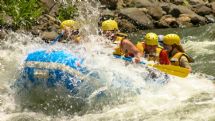
.jpg)

